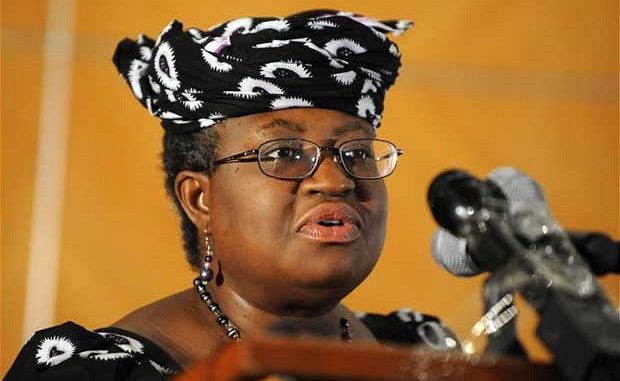
The immediate past Finance Minister, Ngozi Okonjo-Iweala, said on Monday that having a handle on Nigeria’s spiralling inflation, foreign exchange problem, fiscal deficit and debts control were key to resolving the country’s current economic crisis.
Mrs. Okonjo-Iweala, who spoke on Aljazeera TV programme, The Stream, said focusing on the basic issues of macroeconomic stability was crucial to fixing the country’s economic challenges.
“If you don’t pay attention to the fundamentals of having a stable and good exchange rate policy, inflation under control, manageable fiscal deficit and debts, there will continue to be trouble in the economy,” she said.
Nigeria is facing its worst economic crisis in decades. The economy slipped into recession after contracting in the first two quarters of 2016.
Inflation jumped from 16.2 per cent in July to 17.1 per cent in August 2016, according to the National Bureau of Statistics.
Since the introduction of the floating foreign exchange policy by the Central Bank of Nigeria (CBN), which freed the Naira from a band of N197-N199 to the dollar, the currency has been in a free fall against other international currencies.
From about N281 to the dollar at the beginning of the policy in June, Naira crashed to about N420 to the dollar shortly before the Sallah holidays on Friday.
Mrs. Okonjo-Iweala, a former World Bank Managing Director, told Al Jazeera that she remained optimistic that solutions to the country’s economic decline could still be found.
Asked what would be her top three priorities to resolve the country’s current economic crisis if she had remained the finance minister, Mrs. Okonjo-Iweala said she would prefer the current managers of the economy talk about it.
“I have contributed the best I could to the country. It is still the most interesting country in the world. It is better to leave those who are managing now to say what they would do.
“All I can say is that there are solutions. Nigeria is a vibrant country. I love it so much. I know it is going to come out of this one way or another,” she said.
On if President Muhammadu Buhari were to ask her to come and help in resolving the country’s economic crisis, Mrs. Okonjo-Iweala said: “One of the things you learn as you get wiser is to talk less as you grow older.
“I have spent my time contributing to the country. It will be better to leave those managing the economy to do what they know how to do.
“I served my country for seven years and it was a great honour. The second time was very tough, but it was still an honour. I am not the only person who is a repository of knowledge. There are other people who can equally try their hands in running the economy.”
On the continental scale, Mrs. Okonjo-Iweala, expressed regrets the economic gains recorded in Africa have started being eroded in the last two to three years.
“On the continent, we have seen a period when the economy was doing relatively well. It’s only in the last two to three years that things have started to go a bit south.”
She spoke about the job initiative of the Goodluck Jonathan government, YOU-WIN.
“The whole idea was to have a business plan competition. Beneficiaries were expected to create jobs to employ six people or more.
“Each created 9-10 jobs. The World Bank did an evaluation of it and found it good. I do believe the government should come in. We started a peer to peer mentoring. Now, one of the things I want to say is that creating employment is not only about struggles, it is about managing success,” she said.
On how the anti-corruption war was fought during her time in government, Mrs. Okonjo-Iweala described it as “a very tough fight”.
“It was tough. I must thank my team. You don’t do it alone. I had the support of an economic team in the Ministry of Finance. At the end of the day, you need to have some principles,” she said.
– Premium Times
